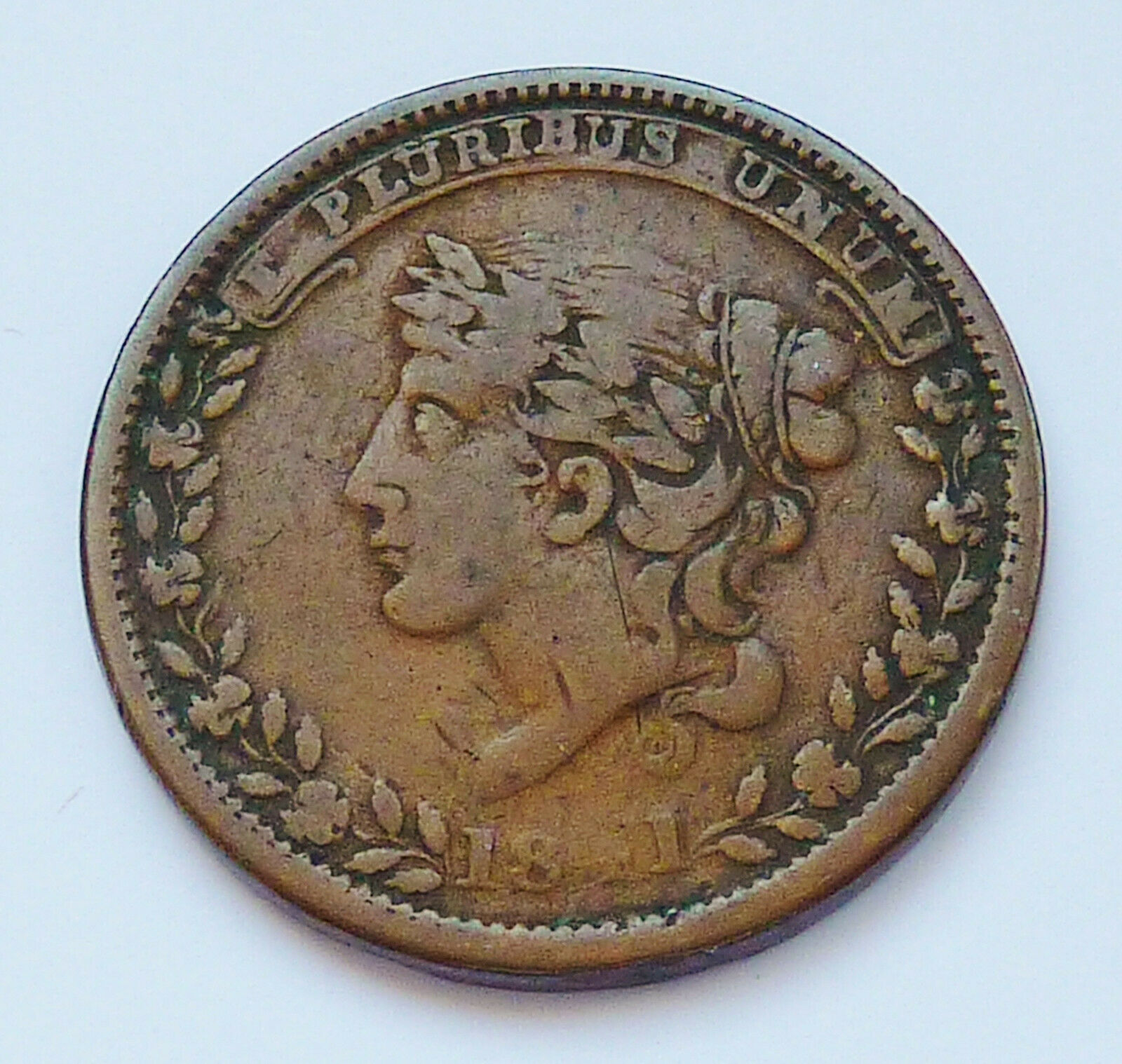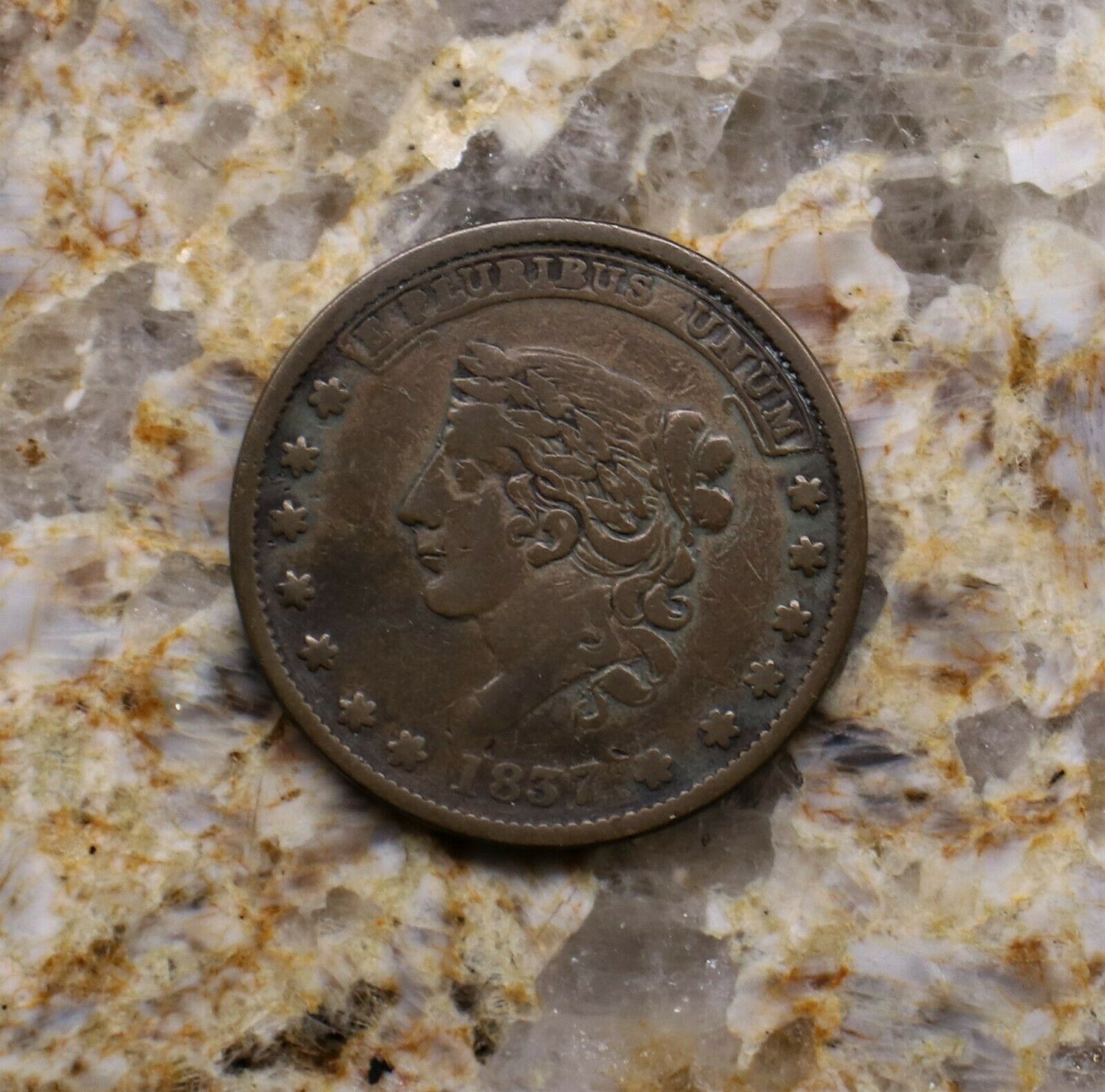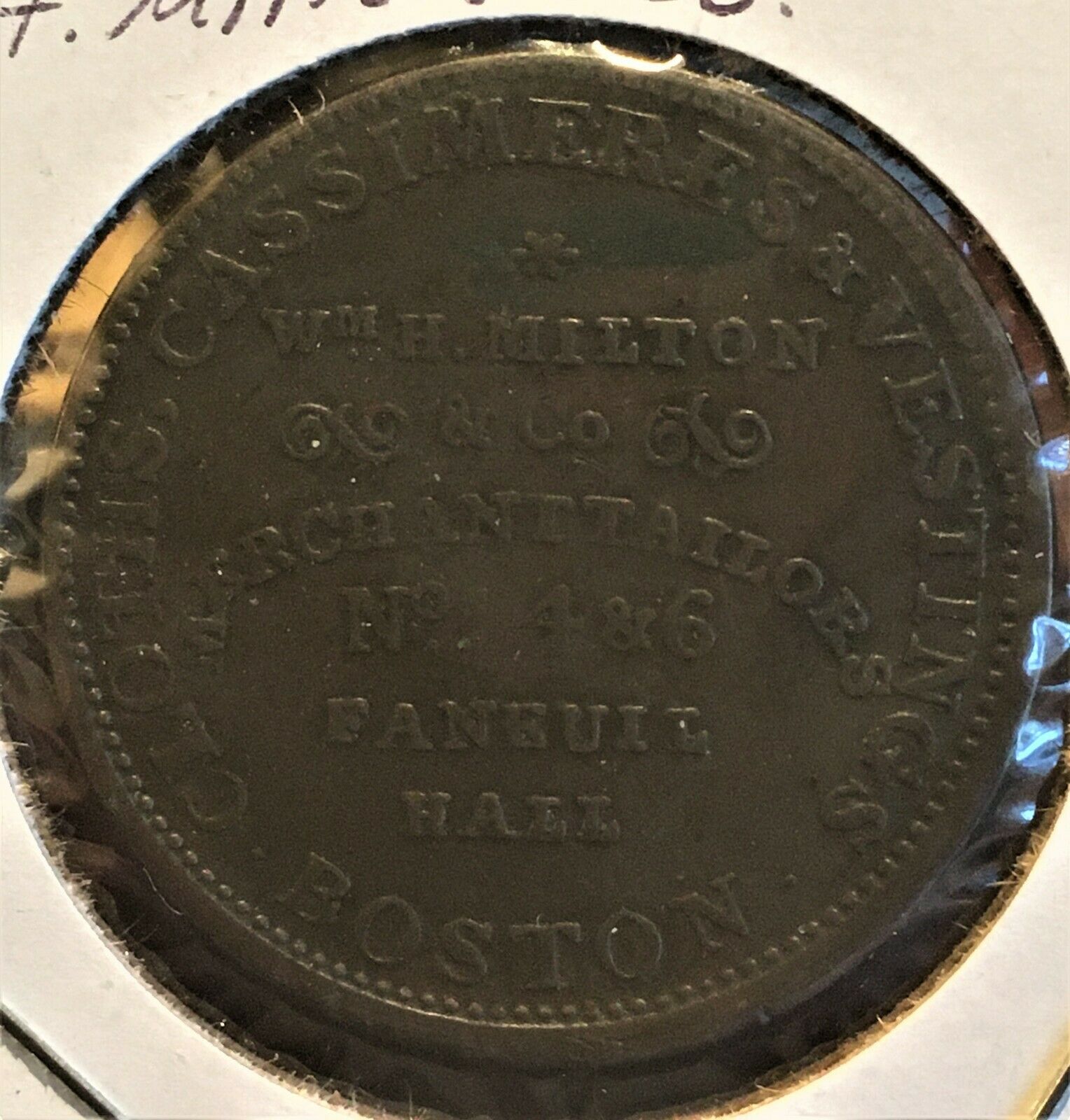-40%
1841 HARD TIMES TOKEN ~ HT 67 ~ LIBERTY HEAD / SPECIE PAYMENTS - MAY TENTH 1837
$ 10.56
- Description
- Size Guide
Description
HARD TIMES TOKEN ~ LIBERTY HEAD / SPECIE PAYMENTS SUSPENDED ~ HT 67 ~ RARITY 1Date:
1841
Material:
Copper
Rim:
Plain
Size:
1-1/8-inch / 28-mm diameter
Condition:
Very Good
Obverse:
“
E. Pluribus Unum
” on a ribbon, over the top of Liberty facing left. There is an open wreath at the sides, and “
1841
” at the bottom.
Reverse:
“
Specie Payments Suspended
” around the edge. A wreath is just inside, and “
May – Tenth – 1837
” in the center.
Comments:
This Hard Times token is in nice original condition. It has had quite a bit of wear on Liberty’s wreath, and either the “4” was weakly struck, or it has had a lot of wear, as it is hard to see. The fields are nice, but there are some old scratches on her neck, and on the reverse where the bow ties the wreath together. It has not been cleaned and has nice original color.
According to Charles Calkins – Hard Times Token Expert
:
From 1837 to about 1844, the United States experienced an economic depression, beginning with what is now known as the Panic of 1837. A number of factors contributed to the panic, most of which occurred during the Presidency of Andrew Jackson, with Martin Van Buren as his vice president. Van Buren, although only a few weeks in office as President when the panic hit, often receives much of the blame.
In 1836, the Bank of England, seeing that monetary reserves were low, increased interest rates in order to attract deposits. Due to the economic predominance of Great Britain, banks in the U.S. had to do the same.
Demand for U.S. cotton was reduced, causing the price to drop 25% in February and March 1837. The U.S., still an agricultural economy, relied on cotton prices as an economic stabilizing factor.
In July 1832, President Andrew Jackson vetoed the bill which would have rechartered the Second Bank of the United States, the central U.S. bank, whose charter was to expire in 1836. Over the next four years, as the bank's operations concluded, state-chartered banks in the West and South increased lending to an unsafe degree as compared to revenue on-hand.
The “Specie Circular of 1836”, an executive order issued by Jackson, specified that western land could only be purchased with gold and silver coinage, and not paper money, as the large amount of paper money currently in circulation that had been issued by state banks was causing inflation. The Deposit and Distribution Act in the same year placed federal funds in banks across the country, and many of these banks were in the West. The combination of these orders reduced reserves in banks in the East, causing them to issue fewer loans, leading to financial stress.
Starting on May 10, 1837, banks in New York City would no longer exchange paper money for coinage at the full face value of the paper notes — that is, they suspended specie payments.
As a result, "hard times" spread from the East, to the North and South, with a reduction in circulating currency, loss of business, falling agricultural prices, bankruptcies of plantation owners, and other economic pressures. Out of 850 banks in the U.S., 62 partially failed and 343 closed down entirely — a run on one bank when many of its customers withdrew their funds only spread panic, causing others to do the same elsewhere, and yet more banks to curtail their monetary policies still further. Several states even defaulted on foreign bonds, leading to the withdrawal of the U.S. from international money markets until the late 1840s.
During the period, to help alleviate the shortage of coinage due to hoarding, private mints issued "Hard Times tokens," modelled after the large cents of the time, although different enough such that the minter could not be accused of counterfeiting. These tokens had political and/or satirical themes, or advertised merchants.
This May Tenth 1837 token will make a fine addition to your Hard Times token collection.
=====================================================
Shop with confidence, we give a 30-day return privilege.
The buyer pays actual shipping costs -
NO handling fees!
If you click the
"
Shipping and Payments
"
tab, under my pictures, you will see that I have listed
2 ways
of mailing
including parcel post
.
If you would like
Postal Insurance
please let me know, and I will add it to your invoice. We accept
PayPal
for immediate mailing. California buyers add sales tax.
PLEASE BE ADVISED:
eBay is committed to supporting the
June 2018 Supreme Court decision
, which changed the rules around how Internet Sales Tax is administered. Based on these new laws, eBay will calculate, add to your invoice, collect, and remit the sales tax for applicable orders.
Foreign Buyers:
While
1
st
Class Airmail
postage is cheaper than
Priority or Express
mailings, it
cannot be insured
by the post office, but
Priority and Express mailings
can
be insured.
Please click my
eBay STORE
for lots of other coins, medals and tokens available. Thank you.
Surfs up! Good luck!










